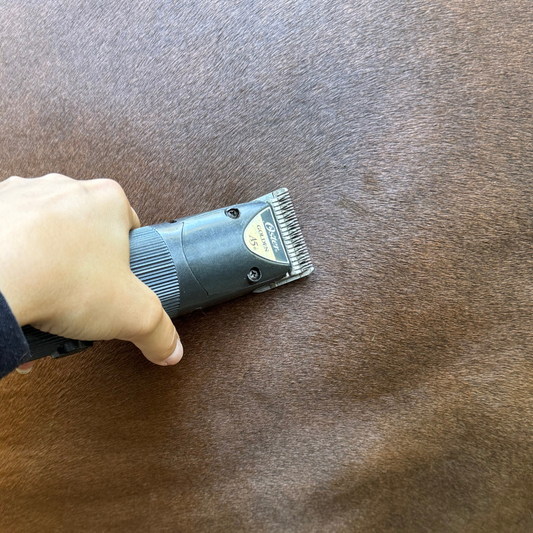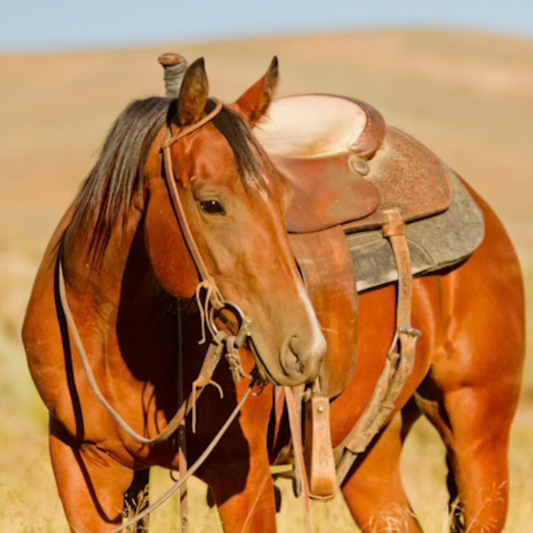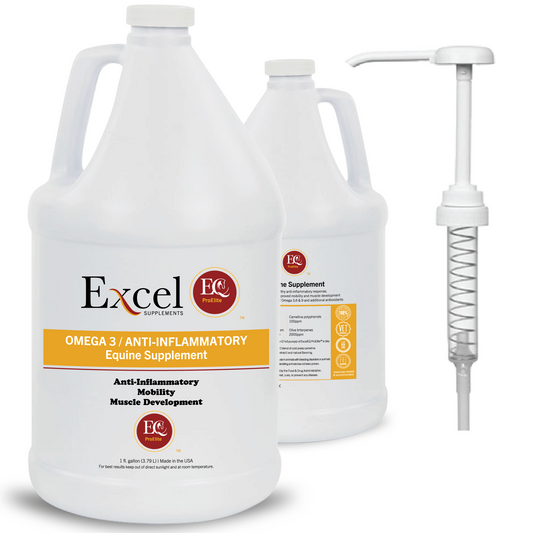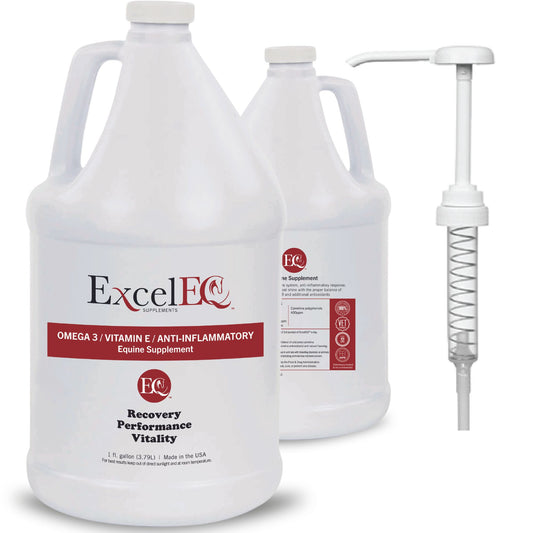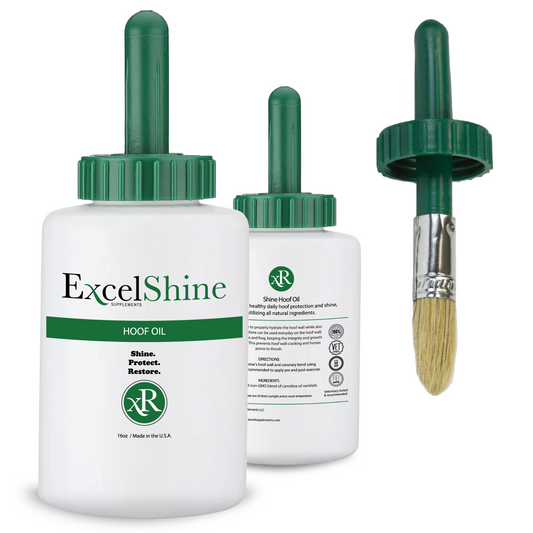Equine Nutrition for Training Programs: Saving with Camelina Oil
Share
Starting a training business is an exciting journey, especially when it comes to caring for the horses at the heart of your operation. Strong equine nutrition for training programs is essential, helping you enhance health, boost performance, and manage costs effectively. Enter camelina oil—a powerhouse supplement that can transform how you care for your horses.
Why Camelina Oil?
When considering Camelina oil, derived from the Camelina sativa plant, it is quickly becoming the go-to choice for horse owners and trainers. This oil is packed with essential omega-3 fatty acids, vitamin E, and other nutrients that are crucial for maintaining optimal horse health. Here’s how incorporating camelina oil into your horses’ diets can make a significant difference:
1. Cost-Effective Nutrition
Feeding camelina oil—especially through high-quality products like Excel Supplements’ ExcelEQ—is a simple way to enhance diets without breaking the budget.
Why it saves money:
- Provides concentrated omega-3s and vitamin E in one product
- Reduces the need for multiple supplements
- Offers superior results compared to more expensive oils like coconut oil or grain-based blends
For trainers managing many horses, camelina oil helps streamline feeding while cutting costs.
2. Enhanced Performance
Beyond cost savings, when it comes to performance, camelina oil is a game-changer. Its nutrient profile directly supports horses in training and competition.
Performance benefits include:
- Reduced inflammation to keep joints moving freely
- Antioxidant protection from vitamin E for faster muscle recovery
- Improved stamina and comfort, helping horses perform consistently
Whether you’re fueling athletes in the show ring or lesson horses in daily work, camelina oil supports peak performance.
3. Improved Comfort and Health
Furthermore, keeping horses comfortable between vet visits is essential for their long-term well-being. Camelina oil’s omega-3 and vitamin E content provide:
- A shiny, healthy coat and hydrated skin
- Reduced stiffness and soreness in joints
- Nutritional support for senior horses, aiding weight gain and vitality
For older horses, camelina oil is one of the best senior horse feed additions thanks to its healthy fat content that supports weight management.
Practical Tips for Feeding Camelina Oil
- Integration: Add directly to grain or forage—horses love the taste.
- Storage: Keep fresh by storing in a cool, dark place using a sealed horse feed container.
- Monitor & Adjust: Track how your horses respond and consult a vet or equine nutritionist to tailor dosage.
Conclusion
Incorporating camelina oil into your horses’ diets is a smart move for any horse training business. It offers cost savings, enhances performance, and improves overall comfort. By choosing high-quality products like Excel Supplements' ExcelEQ, you ensure that your horses receive top-notch nutrition that supports their health and performance in the most effective way possible. So why not make camelina oil a staple in your feeding regimen? Your horses—and your budget—will thank you.
For updated information on equine care, trending topics and discount opportunities follow us on social!
Follow us on Instagram: @excelsupplements
Keep up to date with us on Facebook: Excel Supplements


